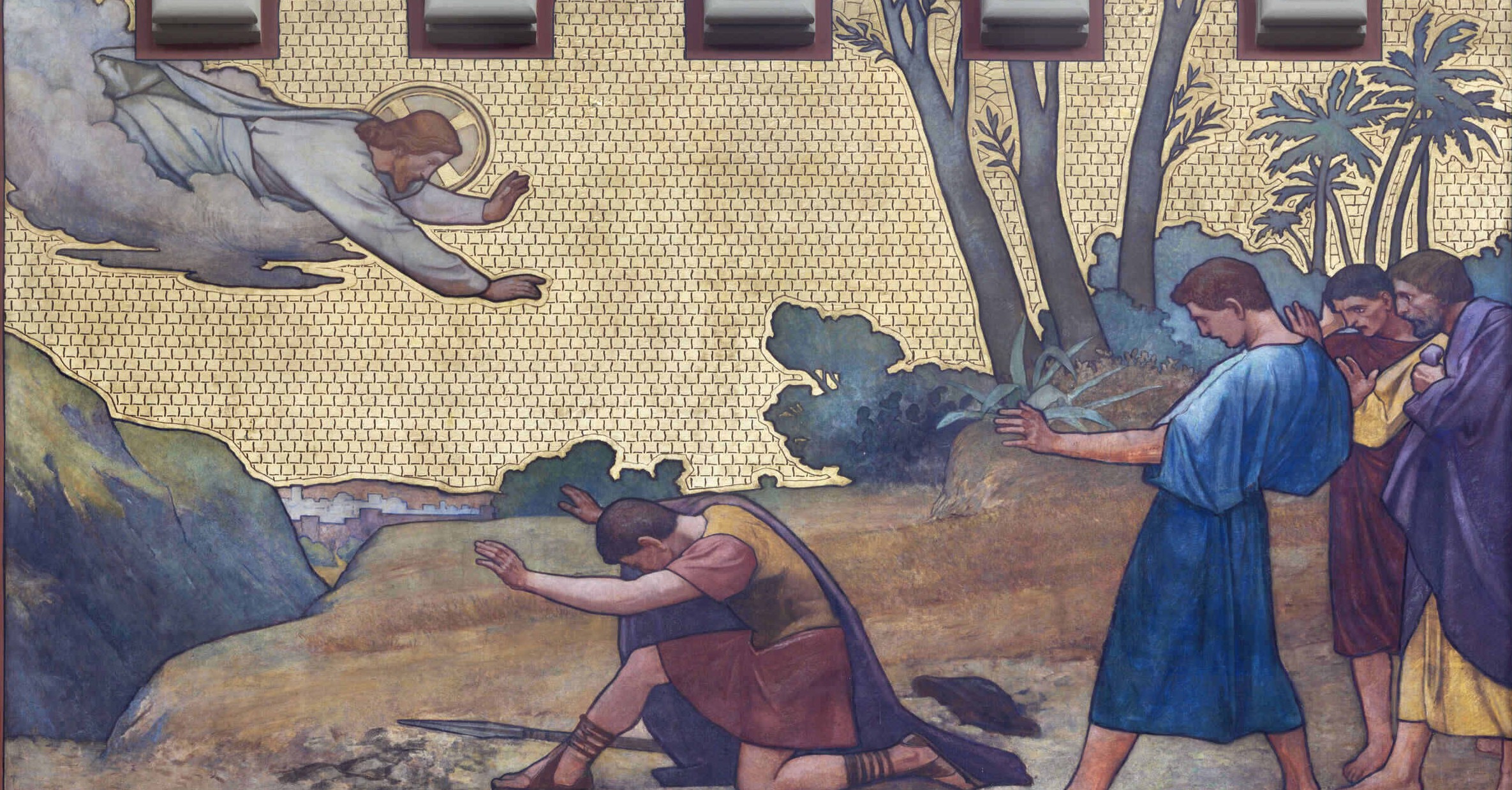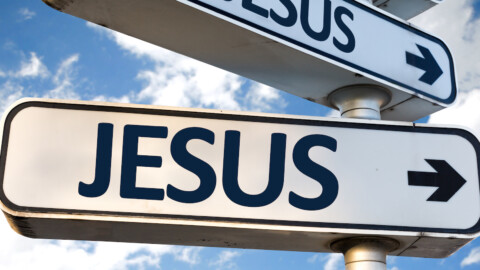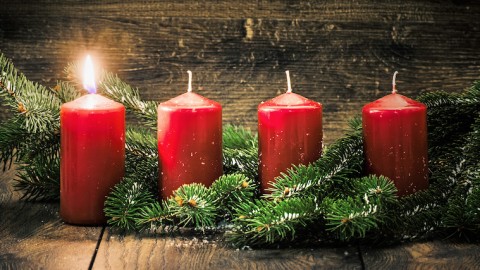6 January 2021
Christmas culminates with the Epiphany: the manifestation of God’s glory to all creation. There’s something very special about this Child, which the world has never seen before, and has wanted, desired and longed for: in Him we see God’s glory and the fullness of His truth (John 1:14). There’s no glory or truth beyond Christ, the fullness of the Godhead.
Sometimes people say, “I hope there’s a light at the end of the tunnel”: we encourage ourselves with wishful thinking that in difficult times things will turn out well; but the beautiful thing about Epiphany is that the Light has shone in the tunnel. Have you ever had a question or thought about something perplexing, and kept on thinking about it, then suddenly a light shone in your heart or your thinking – an insight, revelation or manifestation? As a new Christian I was advised to read John’s Gospel: I read the first verse hundreds of times but couldn’t understand what it was about; but one day the light of illumination dawned. This is what Epiphany is about: suddenly, in the midst of darkness, light appears, a unique Light the world has never seen before. It’s a “wow” moment of understanding and illumination.
Epiphany is no longer gazing at a Child lying in a manger – the Only-begotten Son of God is manifested in all His glory, drawing people and the nations of the earth to worship Him. His glory is unique, manifesting the fullness of God’s grace and truth. This isn’t an ordinary child or king. It’s an invitation to see the reality beyond the ordinary, a glimpse into the supernatural, unusual and extraordinary.
The wise men
Wise men came from the East, led by a star to the Child: the creation joins in guiding humans to the one, true God. There’s always been debate about God’s existence; Saint Paul said creation is the evidence that He exists.[1] God uses creation to draw us closer to Him, to worship the Source of life and light.

Matthew refers to wise men, but doesn’t specify how many. Most Christmas traditions include three, probably because of the three gifts they brought to Jesus, although some Eastern Christian traditions number them as twelve. Although Matthew doesn’t identify them individually, they’re traditionally named Caspar, Melchor and Balthasar. Some call them kings, because they had access to Herod’s court and he listened to them, and because of the wealth they displayed with their lavish gifts. Some consider them astrologers who studied the stars; the stars would lead them to something great for which the world had been looking, longing and waiting.
A star appeared in the heavens, calling them from on high. They made a long pilgrimage to worship the One who lay in swaddling cloths in a manger, whose coming the prophets of old had proclaimed. I look forward to the day when we’ll again make our pilgrimage to the church to worship Him. They went to worship the Baby lying in a manger. Their coming from the East points to the mystery that the Gentiles are to be saved as well.
The Feast of Epiphany points to the great mystery, that the salvation coming to Israel isn’t only for Jews, but in God’s eternal plan it’s also for Gentiles to become fellow heirs, member of the same body, sharers in the promise, and children of God.[2] The Gentiles are no longer excluded from the Covenant of promise, but are now recipients of the divine blessing promised to Abraham. In God’s mind and heart, salvation wasn’t only for a few people or one nation, but for all creation: He included you and me in His plan. Truly we have a great reason to rejoice and celebrate.
The glory and universality of the Messiah’s reign
If they were kings who came to worship, they acknowledged that the Child Jesus is greater than themselves, a King who deserved their adoration, gifts and treasures. When someone like Herod has power, it’s not easy to relinquish or lay it down and acknowledge someone greater. Imagine the humility of the wise men in realizing that “someone greater is here”. The Messiah’s manifestation is accompanied by the anticipated universality of His Kingdom.
“The Ethiopians shall fall down before Him, and His enemies shall lick the dust. The kings of Tarshish and the islands shall offer gifts, and the kings of Arabia and Saba shall bring gifts to Him.” [3] Who is this, that kings will adore Him and bring Him gifts? This is the beauty of what we celebrate today, which makes us reflect, who is this? Jesus is the One who manifests the unique glory of the Father. “All kings shall bow down before Him, and all nations shall serve Him.” [4] This puts us in mind of the wise kings who came to bow down before the Christ Child.
This is an acknowledgment that He’s the Owner and Creator of all things. In our Sunday liturgy, individuals at the Offertory offer bread and wine to the priest, representing the fruit of the earth: the work of human hands is given to the King of kings and Lord of lords. God entrusted man with the earth, to be fruitful and multiply, that He would bless the work of man’s hands, the earth would bloom and be fruitful in abundance, His creation, humans, would partake of its abundance – rain coming from heaven, something growing in the field – and it would cause man’s heart to rejoice, praise, and bring thanksgiving, honour and glory to Him.
The gifts they brought –
- gold, befitting to king;
- frankincense, befitting a priest; and
- myrrh, befitting to someone who was going to die
– spoke of who the Child would be.
Arise, shine
Isaiah says to Israel, the Church and us all, “Arise, shine, for your light has come, and the glory of the Lord will shine upon you.” [5] As we celebrate Epiphany, Christ shines in us, but He must also shine through us, that the world may see God’s glory, that God may glorify the Father and His Son Jesus Christ because of their work to bring salvation to man. Particularly in these times, may we not forget that we’re not looking for the light: we have the Light if we have Jesus in our hearts. We need to trust that Light: He said, “I AM the Way, the Truth and the Life”. We and the Church should rise up: in the midst of difficulty and darkness we’ll see that the Light is needed all the more, and that Light is in and through the Church, through you and me. May that Light shine to us all and to the world, particularly when the world needs it most.
[1] Romans 1:18-20
[2] Ephesians 3:1-12
[3] Psalm 72:9-10. Tarshish was in southern Spain; the islands may include Corsica, Sardinia, Sicily, Crete, Cyprus and Rhodes.
[4] Psalm 72:11
[5] Isaiah 60:1









